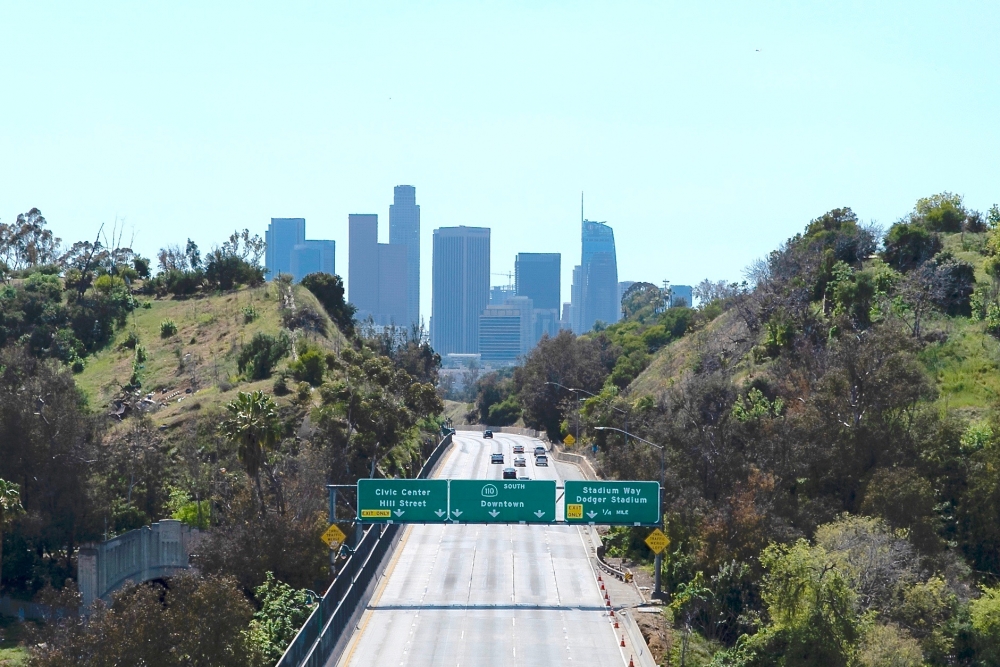
Pollution and COVID-19

It is one of the few silver linings around the dark cloud that is COVID-19: In normally smog-choked Los Angeles, air quality this week was among the best of any major city in the world. That’s according to the Swiss air quality technology company IQAir, which keeps tabs on pollution levels internationally.
Similar improvements have been measured over cities in Europe — Madrid, Milan, Rome and Paris — as well as in India and China.
The news doesn’t surprise economists and environmental scholars, who see the logic behind pollution dropping as people stay home en masse and whole sectors of the economy shut down, but it does have researchers pondering what this development suggests about the future in regards to production, policy and the environment.
Ranjit Deshmukh, an assistant professor in UC Santa Barbara’s environmental studies program, sees the current situation as an opportunity to regroup and reexamine our policies and priorities. “If we have to draw lessons from these exceptional circumstances, then those lessons would be the importance of global cooperation in tackling global problems,” he said.
COVID-19 is seen as an immediate threat by all: rich and poor, young and old, in developing and developed economies.
“In contrast, other global threats — like climate change, ocean garbage and plastic pollution — are not perceived as personal threats,” Deshmukh said. “If that perception changes, this current crisis has shown that the global community can quickly come together to address the problem.”
As the economy slows, it presents us with an opportunity to transition to a sustainable, less polluting system. “If we give subsidies to polluting industries just so they survive, then we would have lost an important opportunity,” he said.

Simone Pulver
Photo Credit: SONIA FERNANDEZ
Unfortunately, it’s not going to be smooth sailing toward a new, green society. “There’s a big risk that what is happening right now plays into a pre-existing narrative — an incredibly powerful narrative — of jobs versus the environment,” said environmental sociologist Simone Pulver, an associate professor in the environmental studies program who researches patterns in toxic pollution.
Much of the environmental benefit we are witnessing is likely due to curtailing activity by just a handful of highly polluting actors. However, those nuances are merely obscured by the blanket shutdown of a wide range of activities, she explained.
“There’s a way in which the aggregate picture is incredibly misleading when we’re thinking about what it takes to minimize pollution,” Pulver said. We could probably achieve similar benefits by targeting policies at just a few industries that have an outsized effect on pollution levels.
There’s also the sociological ramifications of where people choose to live, and how they conduct their lives. Many people are working remotely, and some of that behavior will persist.

Kyle Meng
Photo Credit: UC SANTA BARBARA
“For example, suppose people realize that teleworking isn’t so bad, or that they don’t need to engage in air travel as much as they thought they did,” said environmental economist Kyle Meng. “That would decrease the long-term trajectory of greenhouse gas emissions and local pollution even with a rebounding economy.”
On the other hand, pandemics were, historically, often followed by migration out of dense urban centers, which are more susceptible to the spread of disease. That would be bad news for pollution and greenhouse gas emission simply because cities, in general, produce less emissions per capita than other places.
“People who live in cities have lower carbon footprints than people who live in the suburbs,” said Meng, an assistant professor at the Bren School of Environmental Science & Management and the Department of Economics.
The past few decades have seen more Americans move to big cities than away from them. The looming question is how this trend changes due to COVID-19. The results will have major consequences for pollution levels going forward.
Meng believes the duration of the outbreak will likely influence our response. “If these concerns last for two years, as a lot of the epidemiologists are saying, you can just imagine a very dramatic mind-shift in how people think about living in densely populated cities” he said. “And if that’s the case, that actually has very dramatic consequences on global carbon emissions as people move toward more carbon-intensive areas.”
The COVID-19 pandemic has exposed a variety of issues and actions that effect pollution levels around the world. “It’s a really interesting moment for thinking about the relationship between economic activity and environmental harm,” Pulver noted.
Perhaps what is more important, she added, are public perception and opinion toward this relationship, because what happens next depends strongly on how society chooses to respond.



